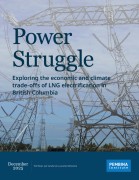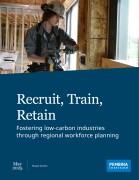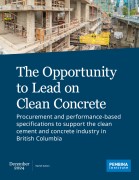Across Canada and elsewhere, British Columbia is being commended for its deft navigation of the COVID-19 pandemic. Now B.C. has another opportunity to show leadership — by rebuilding the economy to ensure our province’s future resilience.
The biggest threat to the recovery of our economy is stalling — or worse, going backwards — where important gains have been made in the province. B.C.’s leadership on climate action is one of our crowning achievements.
We see much opportunity in complementing and accelerating the goals of the CleanBC climate plan while investing in jobs and better health and well-being for British Columbians affected by the crisis.
Download the action plan, or read a summary of the principles and recommendations below.
Four principles for a resilient recovery in B.C.
- Support employment opportunities resilient to future economic shocks and disruption as the world seeks to limit warming to 1.5 degrees Celsius
- Prioritize investment in industries and businesses producing low- and zero-carbon goods and services to grow the clean economy
- Incentivize decarbonization efforts that go beyond existing regulatory requirements
- Ensure decisions on economic relief and stimulus programs complement, enhance, and accelerate progress toward CleanBC’s vision and goals
In Rebuilding a Resilient B.C., the Pembina Institute provides recommendations on how to secure a resilient economy through stimulus, and sustain progress toward a prosperous, clean, low-carbon future.
Recommendations
Low-carbon homes and buildings
- Raise incentive caps to deepen retrofits of homes and buildings
- Boost funding to accelerate retrofits and construction of social and Indigenous housing
- Invest in deeper retrofits of public buildings
- Grow and train the workforce and develop the supply chain
Clean transportation
- Provide operating and capital funding for transit systems
- Decarbonize last-mile urban freight deliveries
- Invest in active transportation infrastructure
Clean energy
- Position B.C. to be a leading supplier of renewable fuels
- Develop a strategy to set B.C. on a path to be a leading producer and consumer of zero-carbon and carbon-neutral hydrogen









